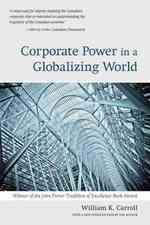- ホーム
- > 洋書
- > ドイツ書
- > Humanities, Arts & Music
- > History
- > modern times
Description
(Short description)
In einem systematischen Vergleich wird die Bedeutung multiethnischer Großreiche für die Geschichte der europäischen Moderne neu bestimmt. Die multiethnischen Großreiche und ihre Bedeutung für die Entwicklung der europäischen Geschichte.
(Text)
The empires of Europe were characterized by their ethnic pluralism and diverse geographical backgrounds. This pluralism was long held to be the reason for the eventual failure and disintegration of Europe. Unlike today, the empires of the time had a more lasting influence on the history of Europe than did the individual nation states. The contributions to this volume systematically compare four European empires of the 19th and early 20th centuries: the British Empire, the Habsburg Monarchy, Russia and the Ottoman Empire. Examples are given to show the tension that existed in the relationships between the central and the peripheral areas as well as between the rulers and those they ruled over. The infrastructure, political conflicts and war experiences are demonstrated in the everyday practice of monarchy and religion.
(Table of content)
e British Quest for Hegemony in sub-Saharan Africa
9. Mehmet Hacisalihoglu:
Borders, Maps and Censuses: Politicization of Geography and Statistics in the Multi-Ethnic Ottoman Empire
10. Ute Schneider:
Commentary
III. Mediating and representing
The Monarchy as an imperial instrument
11. Ulrike von Hirschhausen:
Representing monarchy as an imperial tool-kit: Great Britain and India in the 19th and early 20th century
12. Daniel Unowsky:
Dynastic Symbolism and Popular Patriotism in Late Imperial Austria
13. Richard Wortman:
The Tsar and Empire: Representation of the Monarchy and Symbolic Integration in Imperial Russia
14. Hakan Karateke:
The Ideal of the Ottoman Sultan in the Nineteenth Century
15. Peter Haslinger:
Commentary
IV. Believing and integrating
Religion and education as media for imperial images
16. Benedict Stuchtey:
Mission and Cultural Civilization: Religion, Confession and the British Empire
17. Joachim von Puttkamer:
Ambiguities of Integration: Educational Infrastru
(Author portrait)
Frithjof Benjamin Schenk ist Professor für Osteuropäische Geschichte und Neuere Allgemeine Geschichte am Historischen Seminar der Universität Basel.Ute Schneider ist Professorin für Sozial- und Wirtschaftsgeschichte an der Universität Duisburg-Essen.







